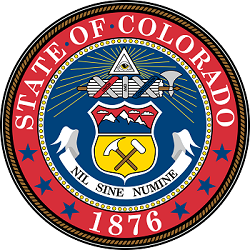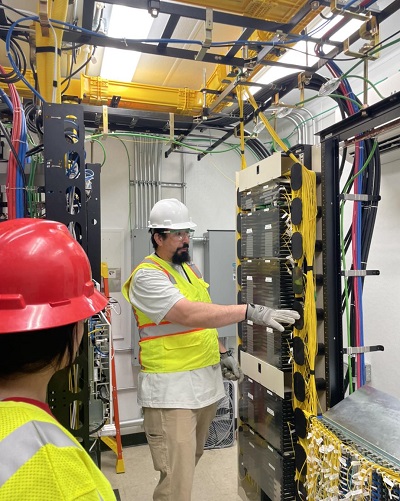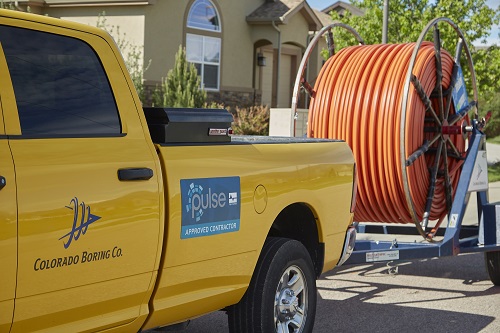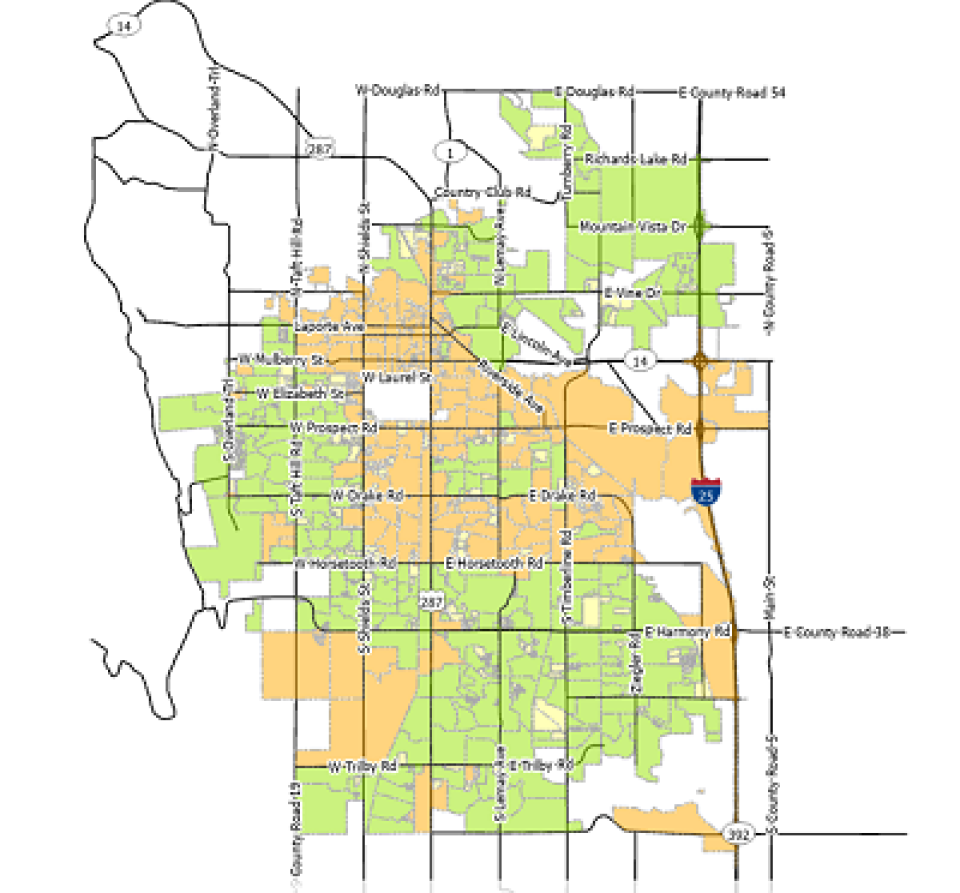
Fast, affordable Internet access for all.

In a recently published piece in The American Prospect, Sean Gonsalves, ILSR's Community Broadband Networks Initiative Associate Director for Communications, reports on four cities across the U.S. that are well prepared to deal with the demise of the Affordable Connectivity Program (ACP).
The article – titled "The Municipal Broadband Solution" – begins by laying out why Congress created the popular program and how letting the ACP go bankrupt undermines the national "Internet For All" Initiative now underway. However, while digital equity advocates across the nation rightly lament the demise of the program, the focus of the article is on cities that have figured out how to deliver afforable high-quality Internet access even without the ACP.
Here's a few excerpts:
Congress created the ACP to soften a harsh reality: Americans pay among the highest prices for broadband of any developed nation in the world, leaving tens of millions unable to afford internet service—something experts have long noted is a telltale sign of a broken market dominated by monopoly providers, and is at the very heart of why the U.S. digital divide is as massive as it is.
However, although federal lawmakers have known for over a year that the fund would be bankrupt by this spring, GOP congressional leaders have not budged on even bipartisan attempts to save the ACP, prompting the Federal Communications Commission (FCC) to announce in January that the agency was being forced to wind down the popular program.
It’s a major setback for the “Internet for All” effort, especially in light of a recent FCC survey that found 29 percent of ACP beneficiaries would be left without any home internet service whatsoever without the benefit, in an age when internet connectivity is a necessity for meaningful participation in 21st-century society.

This week on the podcast, Christopher is joined by Chad Crager, Broadband Executive Director at City of Fort Collins, to talk about the rapidly maturing city-owned network they call Connexion. From a feasibility study in 2018 to the lion's share of construction completed today, Connexion's story illustrates the value of being nimble when expectations meet reality. When planned use of existing conduit was thwarted by frozen and root-blocked pathways, the city bored new routes. When that led to increased construction costs, the city adjusted its target take rate upwards and hired dedicated, community-minded staff eager to be responsive to subscribers and build a sense of goodwill. And when developers argued they only needed a single fiber to run wireless for new apartment complexes, the city convinced them to plan for more growth in the future.
Along the way, the municipal network has committed to doing its part in the fight for digital equity. This includes the establishment of a fund with 6 percent of network revenues going to support low-cost plans and literacy efforts, to partnering with Larimer County on extending the network outside city limits, and more.
This show is 38 minutes long and can be played on this page or using the podcast app of your choice with this feed.
Transcript below.
We want your feedback and suggestions for the show: please e-mail us or leave a comment below.
Listen to other episodes here or see other podcasts from the Institute for Local Self-Reliance here.
Thanks to Arne Huseby for the music. The song is Warm Duck Shuffle and is licensed under a Creative Commons Attribution (3.0) license.
Colorado has long been home to some of the most innovative municipal broadband projects in the country. That trend has only accelerated with last year’s voter-approved elimination of municipal broadband restrictions, and it’s now being buoyed by a massive new wave of state grants that should further expand affordable broadband to long-neglected parts of the state.
Colorado Gov. Jared Polis recently announced the first of multiple broadband investments using stimulus funding from the U.S. Treasury’s Capital Projects Fund (CPF) program. The CPF is funded by $10 billion made possible by the American Rescue Plan Act (ARPA), and is a key part of the state’s goal to bring affordable broadband to 99 percent of Colorado residents by 2027.
According to the Governor’s office, the state just authorized $113 million in CPF funds on 13 projects that will bring fiber service to nearly 19,000 homes and businesses across Colorado. State officials say the funding will be heavily focused on projects in the South and Southwest portion of the Centennial State, where connectivity needs are greatest.

The Colorado Broadband Office says it received 112 applications asking for more than $642 million in broadband funding across the state–five times greater than the allotted awards.
From Colorado to Texas, municipal broadband providers continue to rack up industry accolades, not just for delivering fiber service–the gold standard of Internet connectivity–but for these networks’ ability to provide ubiquitous access across an entire community at affordable rates.
The National Association of Telecommunications Officers and Advisors (NATOA) recently announced that its Community Broadband Projects of the Year Awards for 2023 will go to the Connexion network in Fort Collins, Colorado and TeamPharr.net in Pharr, Texas.
Awarding Community-Wide Access and Affordability
The Fort Collins award is in recognition for the city having established “a municipal broadband utility created by and for the community to improve the life of all 80,000 residential and commercial properties of Fort Collins through better, more affordable Internet,” NATOA said in announcing the award.

But it wasn’t just because Fort Collins’ network provides city-wide access to fiber. The award also recognizes that “Connexion offers the fastest Internet speeds available at affordable prices (emphasis added) as well as competitive phone and TV services.”
Loveland’s municipal broadband utility Pulse is a heartbeat away from expanding into a small neighboring Colorado town eager to offer its residents the same attractive, high-quality Internet access that can be found in Larimer County’s biggest cities.
Officials in Loveland and Timnath, Colorado (pop. 7,800) recently announced the ratification of an Inter-Governmental Agreement (IGA) that greenlight’s a plan to bring ubiquitous, affordable high-speed Internet access to yet another community in the Centennial State, as an increasing number of Colorado cities and towns embrace municipal broadband after years of frustration with the inadequate, high-priced service from the region’s monopoly incumbents.
"The selection of Pulse as our broadband service provider reflects a thorough process of assessment and consideration,” Timnath Town Planner Brian Williamson said in a press statement after the agreement was approved. “We are excited to work together, leveraging their expertise to ensure our residents have access to reliable, high-speed Internet that will contribute to the growth and prosperity of Timnath."
Keeping Up With The Loveland’s
This week Williamson spoke to ILSR about the project and why a town-wide fiber network is such valuable and vital infrastructure.

“Timnath is an interesting place. We are predominantly a residential community and we are growing quickly,” he said, adding that in a post-pandemic world of distance learning, remote work, and telehealth, an important part of the mix when people decide where to live and work is whether that community has reliable and affordable high-speed Internet access.
With the construction of its 65-mile dark fiber backbone nearly complete, city officials in Boulder, Colorado are now ready to move into the next phase of their plan: test the waters for a partnership with private or nonprofit Internet service providers (ISPs) to build out a citywide fiber network to deliver last mile service to the city’s 104,000 residents and businesses.
Last week, the city issued a Request for Information (RFI) “to gauge the interest of for-profit and nonprofit entities in forming a public–private partnership (PPP) with the city to make Gigabit per second-class bandwidth available to all Boulder homes and businesses.”
“As we prepare for further City Council discussion on a future community broadband operating model, it is imperative that we understand the market potential for a PPP (public-private partnership) to meet the city’s goals related to connectivity. We look forward to responses that consider a variety of business models to share technological and operational responsibilities and financial risk with the city in innovative ways,” Innovation and Technology Deputy Director Mike Giansanti said in a press statement when the RFI was issued.
The city is looking for a partner or partners that will come to table with new ideas, create competition, and either fully fund or share costs.
Having prioritized a city-wide fiber-to-the-home (FTTH) build, city officials have identified two main goals: serve the growing demand for “affordable, reliable, and sophisticated broadband technology; and support a thriving business environment.”
Responses to the RFI are due by May 19 at 4 pm MDT.
City officials say they will consider a range of construction and operation designs as well as a variety of ownership models as the City Council will likely vote on the path forward and the execution of a contract sometime this year.
Earlier this month, a new Colorado bill was introduced that, if passed, would rid the state of a law designed to protect monopoly Internet service providers (ISPs) from competition.
SB-183, titled “Local Government Provision Of Communications Services,” seeks to gut a law Big Telecom pushed state lawmakers to pass in 2005. That law, known as SB-152, prevented any of Colorado’s 272 municipalities from building and operating their own telecommunication infrastructure unless local voters first passed a referendum to “opt out.”
End of ‘the Qwest Law’?
Known also as “the Qwest law,” Qwest (now Lumen but more recently CenturyLink), with the help of Comcast, leaned on legislative allies to pass SB-152 to protect their monopoly profits. On our Community Broadband Bits podcast, Ken Fellman and Jeff Wilson, prominent telecom attorneys, recount how lobbyists for the monopoly ISPs were instrumental in pushing two false, but effective, narratives we’ve seen many times before: that SB-152 only sought to “level the playing field” so that private companies could compete with municipally run networks, and that SB-152 “protected” Coloradoans from irresponsible local governments, as if there were no such things as local elections.
But, if passed, the new proposed legislation (SB-183) – co-sponsored by a bipartisan-ish group of state legislators (10 Democrats and 2 Republicans) – would neuter SB-152 and allow local communities to decide for themselves if they wanted to pursue municipal broadband without needing special permission from the state.
More than 121 Colorado cities and towns have now opted out of SB152, a 17-year old state law backed by telecom monopolies greatly restricting the construction and funding of community broadband alternatives.
And the trend shows no sign of slowing down.
Colorado’s SB152, passed in 2005 after lobbying pressure by Comcast and Centurylink, prohibits the use of municipal or county money for broadband infrastructure without first holding a public vote.
Deep pocketed monopolies know they can usually outspend municipalities, bombarding voters with misleading marketing to try and shift the vote in their favor. But SB152 is different from most of the other 17 state preemption laws ghost written by monopolies in a bid to stifle consumer choice: it includes a clause allowing voters to opt out of the restrictions entirely. Angry at decades of market failure, Colorado towns and cities are increasingly shaking off these unnecessary shackles in a bid to improve service.
During the recent midterm elections, four additional communities (Castle Pines, Lone Tree, Pueblo and Trinidad) voted to opt out of the onerous state restrictions. With those votes, more than 121 Colorado communities have chosen to opt out of SB152, according to the latest tally by the Denver Post.
Across the country, the pandemic highlighted the essential nature of affordable fiber broadband networks. That in turn accelerated public annoyance at regional monopolies intent on maintaining a very broken, but very profitable status quo, Tim Scott, a project manager overseeing the buildout of Boulder’s broadband backbone, told the Denver Post.
“Why do we accept this duopoly of service? That’s what we’re trying to do in Boulder is to make it more competitive,” Scott said. “What the pandemic did is it brought the delivery of broadband services to the attention of every mayor.”
For the past four consecutive years, community owned and/or operated broadband infrastructure has proven to be a key ingredient in the makings of some of the fastest Internet Service Providers (ISPs) in the nation.
As was the case last year, PCMag’s recently released Top 10 list of “The Fastest ISPs of 2022” feature operators that are either municipal broadband networks or use city-owned fiber or conduit to deliver service across whole or parts of their footprint (with the exception of this year’s ninth-place finisher). Another way of saying that is: not one of 10 fastest networks in the nation are owned or operated by the major national ISPs, many of whom have embarked on an aggressive lobbying campaign to misinform public officials in particular and the public in general on the viability and successes of municipal broadband and local partnerships.
After ranking the major ISPs in their own slower category, PCMag turns to “talk about real speed.”
For that, you don’t go to the big guys … Higher speeds are found in smaller, localized ISPs.
Need for Speed? Look to Local ISPs and Munis
After PCMag compiled a year’s worth of speed tests to analyze which ISPs offer the fastest download and upload speeds, Sonic – a California-based independent ISP – came out on top this year, having “posted the highest number we have ever seen in our test results. Because the uploads this company offers are, on average, eclipsing download speeds—by a lot.”
Catapulting to the top of this year’s list (from 10th place last year), Sonic is a privately-owned company that uses publicly owned conduit in Brentwood, California.
With a little less than a year left in its projected build schedule, Fort Collins (pop. 168,000) continues to make progress on its municipal fiber-to-the-home (FTTH) network, while also releasing new resources to help keep citizens informed and help households with affordability challenges stay online.
When we last checked in on Fort Collins' Connexion a little more than a year ago, the network was nearing a milestone, having spent roughly 49 percent of its construction budget. Today, the network is well over the halfway point of its $142 million-dollar build. In fact, it expects to be done placing vaults and with boring work in July.
Along the way, local officials have taken steps to increase transparency and improve communication with local residents. Last summer, it released a construction map of the networks' anticipated 357 fiberhoods, delineating which areas were in design, under construction, or fully lit.

In addition, at the end of November of 2020 the network released a Network Status tracker so that users could see in each of the four quadrants of the city if connections were down.